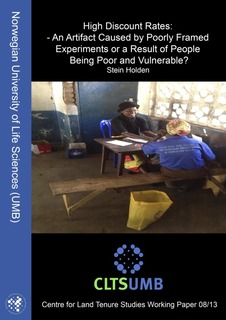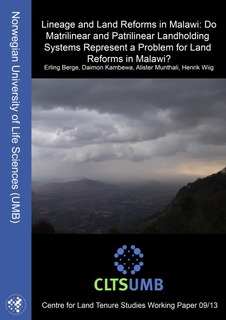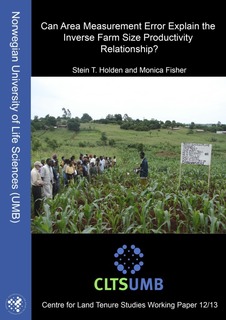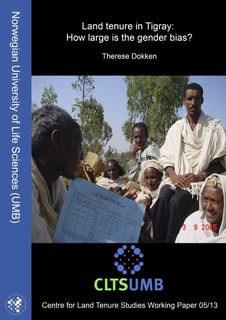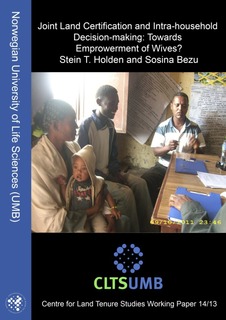Location
NMBU's mission is to contribute to the well-being of the planet. Our interdisciplinary research generates innovations in food, health, environmental protection, climate and sustainable use of natural resources.
About NMBU
NMBU's research is enabling people all over the world to tackle the big, global challenges regarding the environment, sustainable development, how to improve human and animal health, renewable energy sources, food production, and land- and resource management.
Members:
Resources
Displaying 56 - 60 of 98High discount rates : an artifact caused by poorly framed experiments or a result of people being poor and vulnerable?
This study revisits the issue whether poverty and shocks are associated with high discount rates by using an incentive compatible Multiple Price List approach in a poor rural population in Africa where a substantial share of the population had been affected by drought in the recent rainy season. Randomized treatments included tests for present bias, magnitude effects and time horizon effects.
Lineage and land reforms in Malawi: do matrilinear and patrilinear landholding systems represent a problem for land reforms in Malawi?
This paper is about land tenure relations among the matrilineal and patrilineal cultures in Malawi. Data from the National Agricultural and Livestock Census are used to characterize marriage systems and settlement and landholding patterns for local communities. Marriage systems correspond to customary land tenure patterns of matrilineal or patrilineal land holding. The differences between the two major ways of land holding represent a particular challenge for land reforms intending to unify rules for land tenure and land devolution.
Can area measurement error explain the inverse farm size productivity relationship?
The existence of an inverse relationship (IR) between farm size and productivity in tropical agriculture remains a debated issue with policy relevance. Poor agricultural statistical data, including data on farm sizes and farm plot sizes that typically are self-reported by farmers, can lead to biased results and wrong policy conclusions. This study combines self-reported and GPSmeasured farm plot and farm sizes to assess how measurement error affects the IR using three rounds of farm plot and household data from Malawi.
Land tenure in Tigray : how large is the gender bias?
This study finds that female-headed households have 23% smaller owned landholdings and 54% smaller operational landholdings. Differences in characteristics such as age, labor, oxen and previous divorce explain less than half the differences in landholding sizes, while the remaining can be attributed to differences in returns to these characteristics. This indicates that there is a gender bias in access to land, even after land reforms that intended to strengthen women’s rights.
Joint land certification and intra-household decision-making : towards empowerment of wives?
We have used gender-disaggregated household panel data from 2007 and 2012 in combination with dictator games and hawk-dove games to assess the effects of joint land certification of husbands and wives on wives’ involvement in land-related decisions within households. We find that joint land certification has enhanced wives’ knowledge of their rights and their influence in land-related decisions, while about a third of husbands attempt to retain their dominant positions, preferring that women retain only their traditional weak rights.


